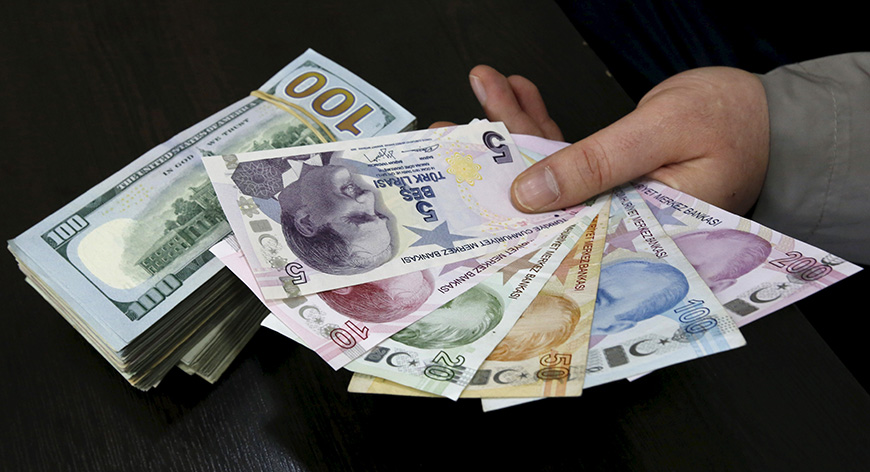- CBN Special Forex Window Attracts N2.715tn Investments
The Nigerian equities market has attracted N2.715tn investments owing to the foreign exchange window for investors and exporters introduced by the Central Bank of Nigeria on April 21 this year.
Stocks have seen a huge rally across board evident in the soaring Nigerian Stock Exchange market capitalisation of listed equities, the All-Share Index, number of deals, as well volumes traded vis-a-vis their values.
The NSE market capitalisation has appreciated by 31.04 per cent between April 20 (last trading day before the window’s opening) and July 14 (latest trading day), from N8.748tn to N11.463tn.
In the same vein, the All-Share Index, volumes traded, deals and value of transactions as of April 20 were 25,282.75 basis points, 147.887 million, 2,578 and N836.842m, respectively.
While as of July 14, the respective figures had risen to 33,261.66 basis points, 311.608 million, 3,113 and N3.27bn.
The special forex window tagged, ‘Investors and Exporters FX Window’, according to the apex bank, will boost liquidity in the forex market and ensure timely execution and settlement of eligible transactions.
Small-scale investors and exporters have always decried the closure of several outfits due to lack of access to foreign exchange to procure necessary facilities to support their operations.
The central bank had earlier opened a special window for Small and Medium Enterprises to facilitate the importation of eligible finished and semi-finished items.
However, the eligible transactions covered under the new window include invisible transactions, such as loan repayments, loan interest payments, dividends/income remittances, capital repatriation, management service fees and consultancy fees.
Also covered by the forex window are software subscription fees, technology transfer agreements, personal home remittances, bills for collection and any other trade-related payment obligations at the instance of the customer.
Other eligible transactions like ‘miscellaneous payments’ detailed under Memorandum 15 of the CBN foreign exchange manual, are also covered under the new window.
Also, transactions and bills for collection are eligible to purchase foreign currencies sourced from the CBN forex window limited to secondary market intervention sales, wholesale (spot and forwards) only.
The only items excluded under the new window are international airlines ticket sales’ remittances, which will only be eligible to access forex at the CBN FX window.
For the apex bank, the supply of dollars to the new window shall be through portfolio investors, exporters, authorised dealers and other parties with foreign currencies to exchange to naira.
The Acting Managing Director, Afrinvest Securities Limited, Mr. Ayodeji Ebo, said in a telephone conversation with our correspondent that the introduction of the I & E FX window attracted significant foreign inflows as well as domestic funds to the capital market.
He said, “The mere fact that the foreign investors got more naira for their dollars, at between N305/dollar and N385/dollar, gave the boost.
“The FX liquidity and economic challenges had pushed most stock prices to all-time lows, creating opportunities for significant upside. The stock market has rallied over 23 per cent since the introduction of the new FX window.”
Ebo added that the eventual convergence of the Nigerian Inter-bank Foreign Exchange Fixing to the Nigerian Autonomous Foreign Exchange Rate Fixing would further boost investors’ sentiments.
According to him, the performance of corporates in the half-year period will also shape the market direction.
The Managing Director, Investment One Venture Capital, Dr. Ore Sofekun, told our correspondent that the special FX window of the apex bank was working as some sort of convergence had been seen among FX rates.
She added, “The main thing is that we have some sort of convergence between the official and parallel FX rates.
“We should continue to work towards a common FX window to further boost confidence in the market. However, the situation is getting more market-determined.”
Also, the Vice-President, Equity Sales, Renaissance Capital, Mr. Daniel Ugwuoke, said the adjustment by the CBN had been very positive considering the level of rallying experienced in the capital market.
According to him, the country is headed in the right direction, but not where it should be yet.
Ugwuoke said many foreign investors were still playing the waiting game, given the multiplicity of FX rates in the Nigerian market space like the inter-bank rate, NAFEX, fuel marketers’ rate and the parallel rate.
He explained that the foreign investors were awaiting a single FX rate, adding, “They still believe the naira is over-valued. They don’t leverage on the NAFEX because they feel it lacks transparency, but are using the Inter-bank rate.
“The CBN is expected to unify the rates at this time. It is time for the CBN to do it. By not doing the adjustment now, the CBN is not only deterring investors, but is threatening the country’s Morgan Stanley International Capital standing.”
The MSCI recently increased the weighting assigned to Nigerian stocks to 7.9 per cent from 6.5 per cent previously in its frontier markets’ basket of equities.
The index designed to track and measure stock markets was rebalanced by Morgan Stanley, and the new weightings took immediate effect.
The MSCI Frontier Market Index Nigeria comprises of 16 companies listed on the NSE, including Nigerian Breweries Plc, Guaranty Trust Bank Plc, Zenith Bank Plc, Nestle Nigeria Plc, Dangote Cement Plc, Forte Oil Plc, Seplat Petroleum Development Company Plc and FBN Holdings Plc.
The MSCI report stated that there would not be any specific review changes for any securities in the country in the MSCI Nigeria-specific index or composite index based on the ongoing issues with the forex market.
Meanwhile, Nigeria’s status in the MSCI Frontier Markets Index remains under consideration for a “standalone” re-classification.


 Naira4 weeks ago
Naira4 weeks ago
 News4 weeks ago
News4 weeks ago
 Naira4 weeks ago
Naira4 weeks ago
 Jobs4 weeks ago
Jobs4 weeks ago
 Travel3 weeks ago
Travel3 weeks ago
 Naira3 weeks ago
Naira3 weeks ago
 Naira3 weeks ago
Naira3 weeks ago
 Investment4 weeks ago
Investment4 weeks ago





























